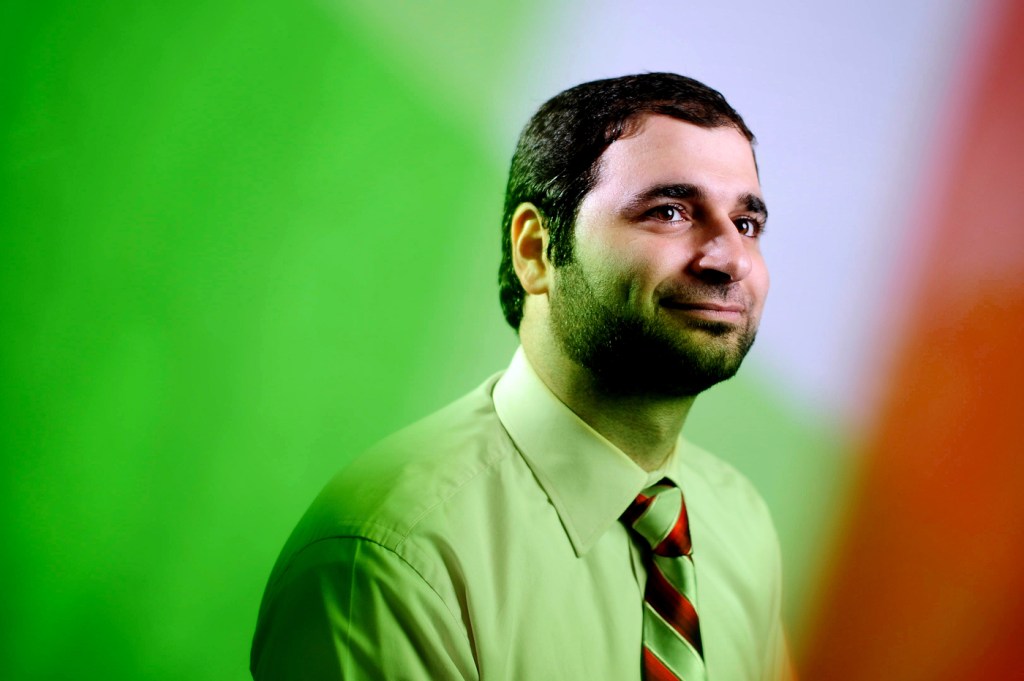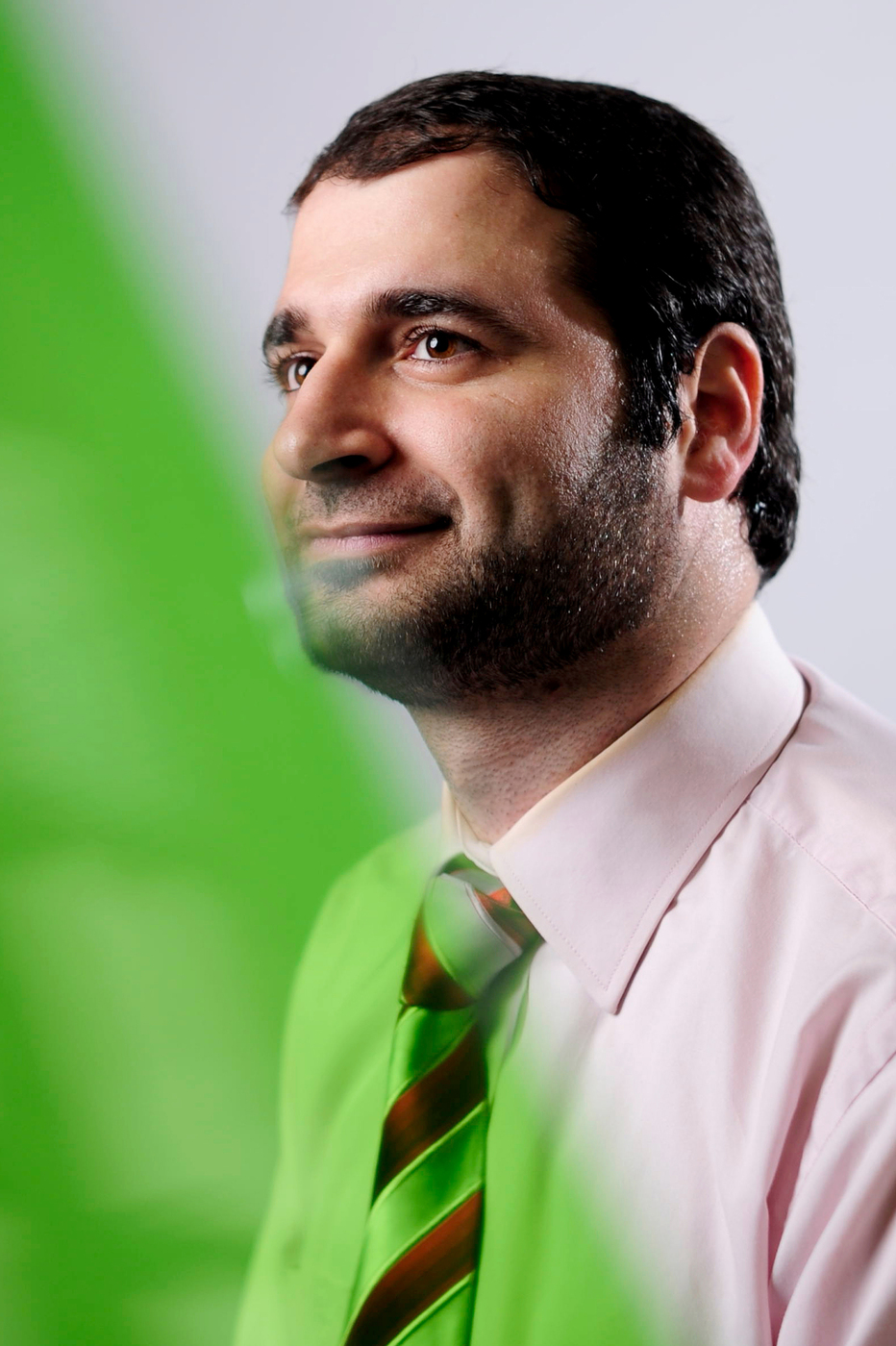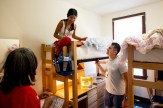Meet the graduates: Ahmad Al Moujahed

Ahmad Al Moujahed, MS’17, a graduate student in the Bouvé College of Health Sciences, is dedicated to helping those who need it most. Right now, that means providing better healthcare for Syrians whose country has been ravaged by war. “Helping these people is imperative of us,” he said, “because we’ve had opportunities that they have not had.” Here, he reflects on Northeastern’s role in helping him achieve his career goals and looks ahead to his future as a clinician-scientist.
What role has Northeastern played in your quest to help mitigate the effects of the Syrian crisis?
My master’s degree in Public Health in Urban Health at Northeastern has helped me better understand the broad meaning of health; how to plan for, implement, and evaluate programs and strategies to improve community health; and the essential components of a successful healthcare system that would meet the varied needs of developing countries.

Masters student Ahmad Al Moujahed poses for a portrait on May 3, 2017. Photo by Matthew Modoono/Northeastern University
One important characteristic of the public health program at Northeastern is that many professors not only teach public health, but they’re also practicing and living public health in the real world, which, I think, gave me and my peers insights into both the academic and the real world aspects of public health. This was essential for me in forming a better, more realistic understanding of the healthcare issues in Syria before the crisis and the severe healthcare deterioration that has happened since it began. With this knowledge and understanding, I’ve been able to raise awareness about the Syrian crisis—especially the collapse of the healthcare system—both in person here in Boston and to a wider audience through publishing academic papers on the topic.
On another level, as a student, my frequent interactions with my professors have given me a lot of experience and skills in multiple fields, including the fields of teaching and education. The knowledge, skills, and experience I gained during my studies at Northeastern helped me enrich my volunteering experience with some U.S.-based non-governmental organizations that are working to alleviate the toll of the Syrian crisis by providing humanitarian and medical aid as well as educational support. For example, I was able to help design, organize, and teach online courses that helped Syrian healthcare professionals who provide healthcare services in areas under siege advance their medical knowledge. In turn, this helped them to better deliver healthcare services in their areas. These courses also helped medical students in Syria overcome some of the educational difficulties they face—difficulties that have increased due to the current crisis.
To what extent do you think the world is a global community rather than many disparate countries?
I think that a good percentage of people from different countries would be willing to make the world a global community if they’re given the knowledge and the chance to do so. Unfortunately, however, most governments and media are not behaving in a way that helps us live as a global community rather than disparate countries.
For example, here at Northeastern, my wife—also a graduate of Northeastern—and I have received support from community leaders, teachers, and students who were sympathetic and willing to help (through donations and the like) alleviate the effects of the Syrian crisis. However, they often didn’t understand the full scope of the conflict and its effects until we talked to them and illustrated some of its consequences on the healthcare system.
What advice do you have for other aspiring global physicians?
My advice for them is to benefit from all the available opportunities in educating themselves and improving their knowledge and skills. Then use that knowledge and those skills not only to practice regular medicine and collect money, but also to help people around the world who are in dire need of it. Helping these people is imperative of us because we’ve had opportunities that they have not had. By helping, we can fulfill part of our responsibility to this world and we can help in making the world a better place to live. We should all strive to make things (such as healthcare systems) better, rather than stopping short at complaining about them.
What’s next for you?
I am planning to apply for an ophthalmology residency. After completing my clinical training, I hope to use my clinical, research, and public health knowledge and skills to be a clinician-scientist and develop a unique model to make a positive impact on the health and lives of human beings.
What’s the one thing you’ve learned at Northeastern that has impacted your life or your work the most?
I think the most important thing I learned is the importance of thinking and working comprehensively when tackling human issues, specifically health issues. Most physicians think about diseases or the organs of the human body when they think about health. On the other hand, scientists studying biology and pathophysiology of diseases focus on one molecule. Although these two approaches are important, it is also essential to realize that humans are much more complicated, and improving their health and life requires keeping the global picture in mind all the time. Considering all aspects of an issue can later become a philosophy that one can live everyday.





